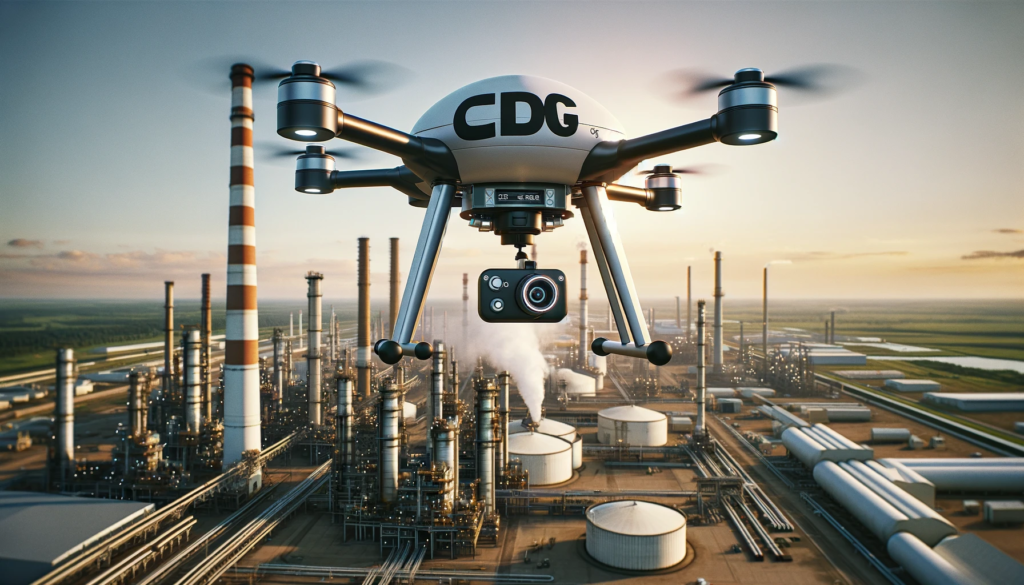Introduction
In the realm of industrial safety and efficiency, staying ahead of potential hazards is paramount. Chemical plants, with their complex infrastructures and hazardous materials, require meticulous monitoring and inspection to ensure operational integrity and the safety of personnel and surrounding communities. Traditionally, conducting inspections in these environments posed significant challenges, often involving risky manual inspections. However, with advancements in technology, particularly the proliferation of drones, a safer and more efficient alternative has emerged. In this blog post, we delve into the transformative impact of Drone Chemical Plant Inspections, highlighting their benefits, applications, and why they’re a game-changer for the industry.
The Importance of Chemical Plant Inspections:
Chemical plants play a vital role in various industries, from manufacturing to pharmaceuticals, providing essential products integral to modern life. However, their operations inherently involve the handling of hazardous substances, making safety a top priority. Regular inspections are mandated by regulatory bodies to identify potential risks, ensure compliance with safety standards, and prevent accidents that could have catastrophic consequences. Traditionally, these inspections involved human inspectors navigating through complex equipment and potentially hazardous environments, posing risks to their safety. Moreover, manual inspections were time-consuming and often limited in scope, leaving room for oversight.
Enter Drone Technology:
The advent of drone technology has revolutionized the landscape of industrial inspections, offering a safer, more cost-effective, and comprehensive solution. Drones, equipped with high-resolution cameras, sensors, and even thermal imaging capabilities, can navigate through confined spaces and hard-to-reach areas with ease, capturing detailed images and data in real-time. This capability is particularly advantageous in chemical plants, where access to certain areas may be restricted or hazardous for human inspectors.
Benefits of Drone Chemical Plant Inspections:
Safety Enhancement: By reducing the need for human inspectors to physically enter hazardous areas, drone inspections minimize the risk of accidents and exposure to potentially harmful substances. This not only protects the safety and well-being of inspection personnel but also mitigates the risk of accidents that could endanger surrounding communities.
Increased Efficiency: Drone inspections significantly reduce the time and resources required to conduct comprehensive assessments of chemical plant facilities. With drones capable of covering large areas in a fraction of the time taken by manual inspections, plant downtime is minimized, ensuring uninterrupted operations and maximizing productivity.
Data Accuracy and Insights: The data collected by drones during inspections are highly accurate and detailed, providing valuable insights into the condition of equipment, infrastructure, and potential safety hazards. Advanced analytics tools can analyze this data to identify trends, predict maintenance needs, and optimize plant operations, ultimately enhancing efficiency and reducing downtime.
Environmental Monitoring: Chemical plants are subject to stringent environmental regulations, requiring regular monitoring of emissions and potential pollutants. Drones equipped with specialized sensors can monitor air and water quality, detect leaks or spills, and assess environmental impact more effectively than traditional methods, ensuring compliance with environmental standards and minimizing ecological risks.
Applications of Drone Chemical Plant Inspections:
Equipment and Infrastructure Inspection: Drones can inspect critical equipment such as tanks, pipelines, and storage facilities for signs of corrosion, leaks, or structural damage. High-resolution cameras and sensors allow for detailed assessment without the need for physical intervention, ensuring early detection of potential issues and preventing costly downtime.
Safety and Compliance Audits: Regulatory compliance is a fundamental aspect of chemical plant operations. Drone inspections enable thorough audits of safety systems, emergency response preparedness, and adherence to regulatory standards. By providing visual documentation and data analysis, drones facilitate compliance reporting and help identify areas for improvement.
Emergency Response and Incident Management: In the event of an emergency such as a chemical spill or fire, drones equipped with thermal imaging cameras and gas sensors can provide real-time situational awareness to emergency responders. By providing aerial reconnaissance and monitoring capabilities, drones enhance the effectiveness and safety of emergency response efforts, enabling faster containment and mitigation of hazards.
Routine Monitoring and Maintenance: Regular monitoring and maintenance are essential for preventing equipment failures and ensuring optimal plant performance. Drones can be deployed for routine inspections of hard-to-reach areas, allowing for proactive maintenance and minimizing the risk of unplanned downtime.
Conclusion:
Drone Chemical Plant Inspections represent a paradigm shift in industrial safety and efficiency, offering a safer, more efficient, and cost-effective solution for monitoring and maintaining chemical plant facilities. By leveraging the capabilities of drone technology, inspection agencies like CDG can help chemical plants enhance safety, comply with regulatory standards, and optimize operational performance. As the industry continues to embrace innovation, drone inspections will undoubtedly play an increasingly integral role in ensuring the integrity and sustainability of chemical plant operations.
By adopting Drone Chemical Plant Inspections, chemical plants can elevate their safety standards, streamline maintenance processes, and ultimately, safeguard both personnel and the environment. As a trusted inspection agency, CDG is committed to leveraging cutting-edge technology to deliver unparalleled inspection services tailored to the unique needs of chemical plant operators. Contact us today to learn more about how Drone Chemical Plant Inspections can benefit your facility and enhance your operational resilience.
